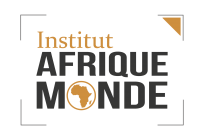In the previous posts, we have just gone through several topos and identified the situations from which the different religious traditions emerge, necessarily making comparisons. The thinking of Ancestorship obeys a plural logic and thus provides a solution to two difficulties intrinsic to religious pluralism: the relations between man and the powers of the invisible
Religious pluralism: 4. Buddhism…
The year 2015 has opened, as we know, with events that question even in Europe the “religious forces” that are at work in all societies, whatever their degree of so-called “secularization”, i.e. the distance between action and political government on the one hand, and the various expressions of religious faith on the other hand. On
Religious pluralism: 3. Jihad
After the first two tickets and after the conference organized by the IAM last Tuesday in the Centre-Sèvres entitled “Africa: Secularism and Freedom of Expression after January 11, 2015” during which we were able to meet against the backdrop of a common philosophy concerning the expression of our respective convictions – or our preventions –
Religious pluralism: 2. Christity…
Today, I dedicate this Letter No. 2 to the approach of religious pluralism by the members of this spiritual continent which, over the past fifty years or so, and more precisely the Second Vatican Council, has profoundly renewed its approach to inter-religious relations, both by its members themselves, who are living witnesses to it –
Religious pluralism: 1. today…
This first Letter that we are publishing is intended to constitute a workshop for reflection on religious pluralism today in Africa. Certainly the recent demonstrations on the continent, following the jihadist attacks in Paris a month ago, underline the urgency of the situation. But it has already been several decades since the signs of tension
Videos: Africa Secularism and Freedom of Expression after January 11, 2015
Video 1 Video 2 Video 3 Video 4
The AfDB: Linking Policy and Practice for an Africa We Want
The processes of globalization and internationalization, partly contained until the end of the 20th century by the bipolar nature of the world, have gained momentum and transformed the world economy. The evolution of the world since the late 1960s, when the AfDB was created, shows that the world at the beginning of the 21st century
The universal at the test of religious pluralism in Africa
The Pan-African Centre for Social Foresight (CPPS) in Porto-Novo (Benin), created by Mr Albert Tévéodjéré, sponsor of the IAM, is launching an initiative similar to a city where the voodoo temple faces the cathedral, both a short distance from a mosque : the Initiative for Education for Peace and Development through Islamic-Christian and Interreligious Dialogue.
Conceptual note of the governance pole
Developments on the African continent: debates, reflections and sharing The African Union calls for governance based on respect for public and private freedoms where priority must be given. The African Union calls for governance based on respect for public and private freedoms, where the daily priority and effectiveness of institutions are dedicated to peace, health,
Conceptual note of the spirituality pole
It is necessary to highlight at the outset the diversity of the religious fact in a plural Africa, whether Muslim, Christian, traditional or other. At the Africa World Institute, we have a project to reflect on spirituality and its impact on the experience in Africa and in Africa’s relations with the rest of the world.
